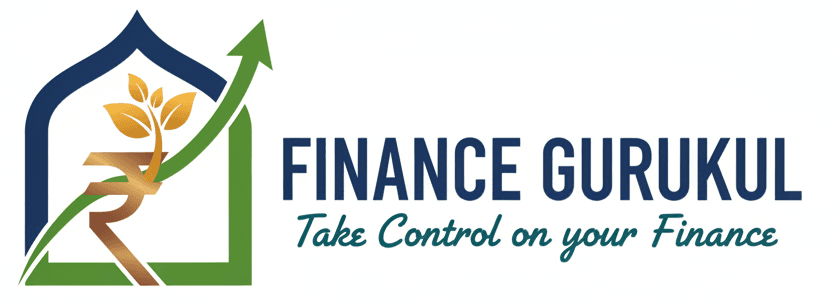
A credit card can be a powerful tool for building and improving your credit score. By using your credit card responsibly, you can demonstrate to lenders that you are a reliable borrower. Here’s a guide on how to use a credit card to boost your credit score:
Understanding Your Credit Score
Before we dive into how to improve your credit score using a credit card, it’s essential to understand what factors contribute to it. Here are the primary factors:
- Payment History: Your credit card payment history is one of the most significant factors in determining your credit score. Lenders view it as an indicator of your reliability and financial responsibility. Making timely payments on all your debts, including credit cards, is crucial.
- Key points to remember:
- Timely payments: Consistently paying your credit card bills on time is crucial. Even a single late payment can negatively impact your credit score.
- Negative impact of late payments: Late payments can remain on your credit report for up to seven years, continuing to affect your score during that time.
- Severity of late payments: The longer you are late on a payment, the more severe the impact on your credit score.
- Importance of credit history length: A longer history of on-time payments can help offset the effects of occasional late payments.
By maintaining a consistent history of on-time credit card payments, you can significantly improve your credit score and access better financial opportunities.
- Credit Utilization Ratio: The credit utilization ratio, a crucial component of credit scores, measures how much of your available credit you’re currently using. It is calculated by dividing your outstanding debt by your total credit limit. A lower utilization ratio indicates responsible credit management and a lower risk of default. This is the amount of credit you’re using compared to your total available credit. A low credit utilization ratio (around 30% or less) is generally considered good.
- Why is it important?
- Lenders’ Assessment: Lenders use this ratio to gauge your financial health and determine your creditworthiness. A low ratio suggests you can effectively manage your debt.
- Credit Score Impact: It’s one of the most significant factors influencing your credit score. A high ratio can negatively impact your score, making it harder to obtain loans or credit cards with favorable terms.
- Financial Responsibility: A low utilization ratio demonstrates financial discipline and responsible borrowing habits.
- How to Maintain a Low Ratio:
- Keep Balances Low: Try to keep your credit card balances well below your credit limit.
- Pay Down Debt: Regularly pay down your outstanding debt to reduce your utilization ratio.
- Avoid Overspending: Be mindful of your spending habits and avoid excessive use of credit.
- Increase Credit Limits: If you have a low credit limit, consider requesting an increase to lower your utilization ratio without increasing your spending.
Also Read: Is a Mutual Fund Right for You? Analyze These 6 Key Parameters.
By understanding the importance of the credit utilization ratio and taking steps to keep it low, you can improve your credit score and enhance your financial standing.
- Credit Age: The length of your credit history. A longer credit history can positively impact your credit score. Credit age, a key factor in determining your credit score, is essentially the average age of all your open credit accounts. It’s a measure of how long you’ve been responsibly managing credit.
- Why is credit age important?
- Stability: A longer credit history suggests financial stability. Lenders often view it as a sign that you can handle credit over time.
- Experience: A longer credit history implies more experience in managing debt. This can make lenders more confident in your ability to repay loans.
- How to improve credit age:
- Keep accounts open: Avoid closing older accounts, even if you’re no longer using them.
- Avoid opening too many accounts: While having a mix of credit accounts is good, opening too many too quickly can negatively impact your credit score.
- Pay bills on time: Consistent on-time payments demonstrate responsible credit management.
- Credit Inquiries: Too many inquiries in a short period can hurt your credit score. Credit inquiries are checks made on your credit history. There are two main types: hard inquiries and soft inquiries.
- Hard inquiries are made by lenders when you apply for credit, such as a loan or credit card. These can have a small negative impact on your credit score, as they indicate that you’re seeking new credit.
- Soft inquiries are made by you or third parties, like potential employers or landlords, when you’re not applying for credit. These do not affect your credit score.
How do hard inquiries affect your credit score?
- Temporary impact: The effect of hard inquiries is generally small and temporary.
- Multiple inquiries: Having too many hard inquiries in a short period can signal to lenders that you may be struggling financially, which can negatively impact your credit score.
- Types of Credit: Having a mix of different types of credit, such as credit cards, loans, and mortgages, can also positively influence your credit score. Here are the main types of credit that impact your score:
- Revolving Credit: This involves accounts where you can borrow up to a predetermined limit, such as credit cards.
- Instalment Credit: These are loans where you borrow a fixed amount and repay it in regular instalments over a set period, like car loans or mortgages.
- Open-Ended Credit: This includes lines of credit that can be used repeatedly, like home equity lines of credit.
- Mortgage Credit: This refers to loans secured by real estate, such as mortgages.
- Other Credit: This category includes fewer common types of credit, like student loans or payday loans.
Also Read: Escaping the Credit Card Trap
Tips for Boosting Your Credit Score with a Credit Card
- Make Timely Payments: This is the most fundamental step. Always pay your credit card bills on time or before the due date. Even a single late payment can negatively impact your credit score. Even it’s a small amount of due like Rs. 20 also can affect negatively.
- Keep Your Credit Utilization Low: Aim to keep your credit utilization ratio below 30%. This means using less than 30% of your total available credit. For example, if your credit limit is ₹1,00,000, try to keep your balance below ₹30,000.
- Pay More Than the Minimum: While making minimum payments is important, paying more than the minimum can help reduce your balance faster and improve your credit score.
- Avoid Closing Old Accounts: Closing old credit accounts can shorten your credit history, which can negatively impact your credit score. If you have old credit cards with low limits that you don’t use, consider keeping them open but not using them.
- Monitor Your Credit Report Regularly: Check your credit report at least once a year to ensure there are no errors. You can get a free credit report from AnnualCreditReport.com.
- Consider a Balance Transfer: If you have high-interest debt on other credit cards, a balance transfer to a card with a lower interest rate can help you pay off your debt faster. However, be aware of balance transfer fees and promotional periods.
- Use Your Credit Card Responsibly: Avoid using your credit card for purchases you can’t afford to pay off in full. Overspending can lead to debt and damage your credit score.
- Consider a Credit Builder Card: If you have a limited credit history, a credit builder card can help you establish credit. These cards often require a security deposit, which is refunded upon closing the account.
- Avoid Applying for New Credit Too Often: Too many credit inquiries in a short period can hurt your credit score. Only apply for new credit when necessary.
- Be Patient: Building a good credit score takes time. Don’t get discouraged if you don’t see immediate results. Stick to responsible credit card usage, and your credit score will improve over time.
Additional Tips for Responsible Credit Card Use
- Set a Budget: Before using your credit card, create a budget to track your spending and avoid overspending.
- Choose the Right Credit Card: Compare different credit cards to find one that offers features and benefits that align with your needs.
- Understand Your Credit Card Agreement: Read the terms and conditions of your credit card agreement carefully to understand the interest rates, fees, and other important details.
- Protect Your Credit Card: Keep your credit card information secure and report any lost or stolen cards immediately.
- Consider Using a Secured Credit Card: If you have a limited credit history or have had credit problems in the past, a secured credit card can be a good option. These cards require a security deposit, which serves as collateral. By making timely payments on a secured credit card, you can gradually build your credit history and improve your credit score.
- Avoid Carrying a Balance: Ideally, you should aim to pay off your credit card balance in full each month. Carrying a balance can led to interest charges, which can increase your debt and negatively impact your credit score.
- Monitor Your Credit Score Regularly: Check your credit score periodically to track your progress. There are several free online tools available that allow you to monitor your credit score.
- Dispute Errors on Your Credit Report: If you find any errors on your credit report, dispute them promptly. Incorrect information can damage your credit score.
- Consider a Credit Counselling Service: If you’re struggling to manage your credit card debt, consider seeking help from a credit counselling service. They can provide guidance on budgeting, debt management, and improving your credit score.
By following these tips, you can effectively use a credit card to improve your credit score and achieve your financial goals.




I think this is one of the most vital information for me.
And i’m glad reading your article. But want to remark on some
general things, The site style is perfect, the articles is really great : D.
Good job, cheers